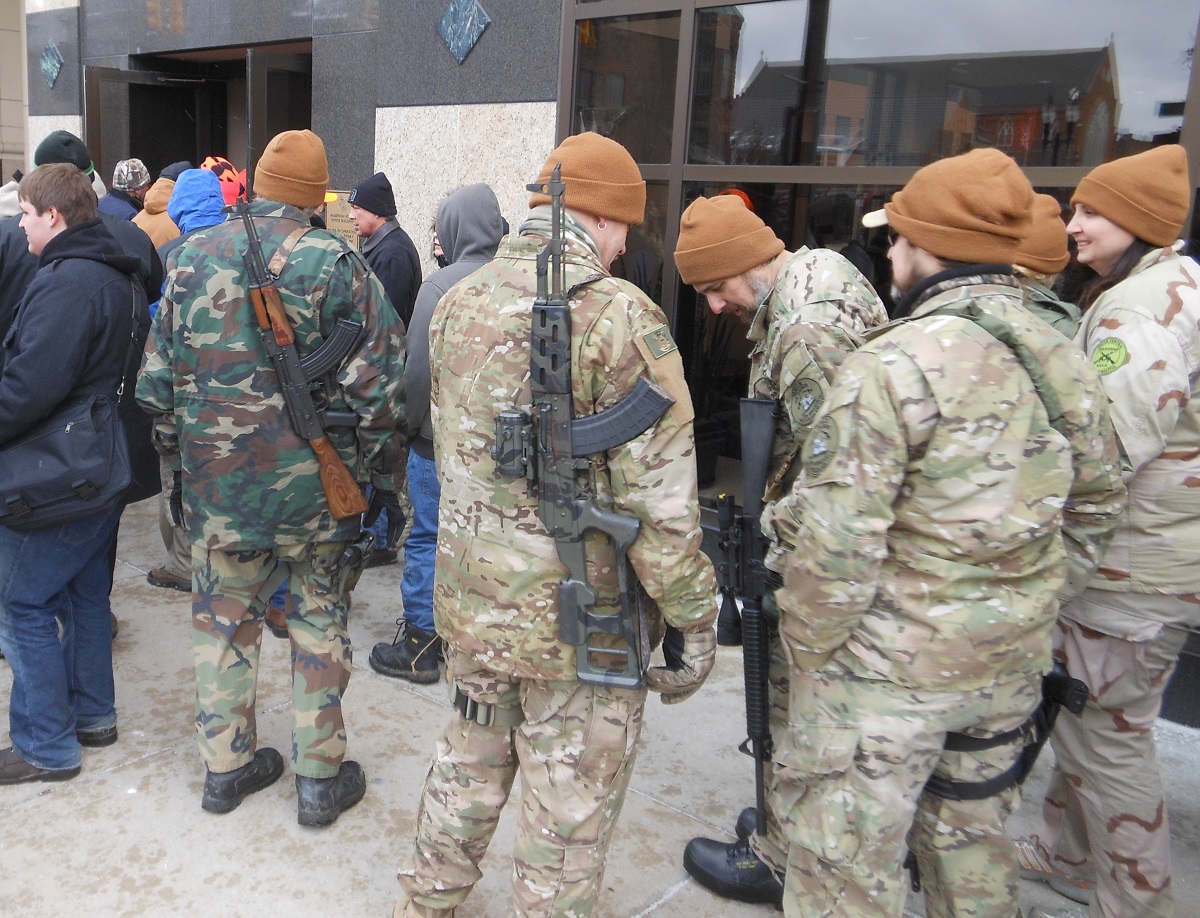The Capitol insurrection and the rise and fall of American militias
Dr. Amy Cooter, a senior lecturer at Vanderbilt University, says the biggest hit to the militia movement began before the Jan. 6 insurrection when many of these groups were deplatformed from Facebook.

Leading up to the 2020 presidential election, there was a rise in activity by anti-government groups. Members of multiple militias in Michigan are charged in a plot to attack police and kidnap Gov. Gretchen Whitmer.
Then came the Jan. 6, 2021, insurrection at the U.S. Capitol. Federal prosecutors believe it was set up — in part — by members of the anti-government, pro-Donald Trump group the Oath Keepers.

Dr. Amy Cooter is a senior lecturer in sociology at Vanderbilt University and an expert in militias. In a recent Scientific American article, she posits that militias are moving toward violent extremism.
She tells WDET’s Russ McNamara that the militia movement was already in decline by the Capitol riot.
“From what I saw, the biggest hit was actually the prior fall — when many of these groups were de-platformed from Facebook, specifically,” says Cooter. “Then January 6, and especially the fallout — the legal, the political, the social — fallout from that continued to be a major hit to that movement.”
Does de-platforming and major events like the Capitol insurrection send these groups underground?
I’m a little wary of the term underground, but they definitely have less of a public presence. Many of them have even pulled their websites trying to draw less attention. Many of them tried to find a variety of other social media platforms, and then had trouble getting people to be consistent across those switches. Some of them, of course, are still very active on Telegram and some other spots, it’s certainly not the case that they’ve completely disappeared.
What typically brings about the rise in militia activity?
There are a number of variables that go into that. But one of the primary ones is the apparent successful trajectory of a Democratic presidential candidate.
The Tea Party rose up as a response to President Barack Obama, research after the fact shows that it was motivated by racism. Is that that same for militias?
Militias tend to not have an overt racial component to them, but just like the average white person, they very well may have internalized racial stereotypes that can feed into some of their objections to Democratic candidates in particular. So there can be slippage between racial stereotypes — ideas of welfare, for example, or anything that’s historically seen as a handout from the government.
Trusted, accurate, up-to-date.
WDET strives to make our journalism accessible to everyone. As a public media institution, we maintain our journalistic integrity through independent support from readers like you. If you value WDET as your source of news, music and conversation, please make a gift today.
